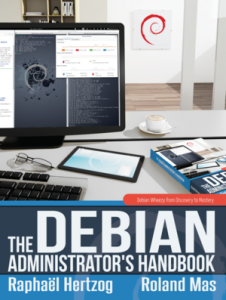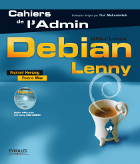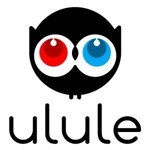 This is my monthly summary of my free software related activities. If you’re among the people who made a donation to support my work (65.55 €, thanks everybody!), then you can learn how I spent your money. Otherwise it’s just an interesting status update on my various projects.
This is my monthly summary of my free software related activities. If you’re among the people who made a donation to support my work (65.55 €, thanks everybody!), then you can learn how I spent your money. Otherwise it’s just an interesting status update on my various projects.
Distro Tracker
Even though I was officially in vacation during 3 of the 4 weeks of August, I spent many nights working on Distro Tracker. I’m pleased to have managed to bring back Python 3 compatibility over all the (tested) code base. The full test suite now passes with Python 3.4 and Django 1.6 (or 1.7).
From now on, I’ll run “tox” on all code submitted to make sure that we won’t regress on this point. tox also runs flake8 for me so that I can easily detect when the submitted code doesn’t respect the PEP8 coding style. It also catches other interesting mistakes (like unused variable or too complex functions).
Getting the code to pass flake8 was also a major effort, it resulted in a huge commit (89 files changed, 1763 insertions, 1176 deletions).
Thanks to the extensive test suite, all those refactoring only resulted in two regressions that I fixed rather quickly.
Some statistics: 51 commits over the last month, 41 by me, 3 by Andrew Starr-Bochicchio, 3 by Christophe Siraut, 3 by Joseph Herlant and 1 by Simon Kainz. Thanks to all of them! Their contributions ported some features that were already available on the old PTS. The new PTS is now warning of upcoming auto-removals, is displaying problems with uptream URLs, includes a short package description in the page title, and provides a link to screenshots (if they exist on screenshots.debian.net).
We still have plenty of bugs to handle, so you can help too: check out https://tracker.debian.org/docs/contributing.html. I always leave easy bugs for others to handle, so grab one and get started! I’ll review your patch with pleasure. 🙂
Tryton
After my last batch of contributions to Tryton’s French Chart of Accounts (#4108, #4109, #4110, #4111) Cédric Krier granted me commit rights to the account_fr mercurial module.
Debconf 14
I wasn’t able to attend this year but thanks to awesome work of the video team, I watched some videos (and I still have a bunch that I want to see). Some of them were put online the day after they had been recorded. Really amazing work!
Django 1.7
After the initial bug reports, I got some feedback of maintainers who feared that it would be difficult to get their packages working with Django 1.7. I helped them as best as I can by providing some patches (for horizon, for django-restricted-resource, for django-testscenarios).
Since I expected many maintainers to be not very pro-active, I rebuilt all packages with Django 1.7 to detect at least those that would fail to build. I tagged as confirmed all the corresponding bug reports.
Looking at https://bugs.debian.org/cgi-bin/pkgreport.cgi?users=python-django@packages.debian.org;tag=django17, one can see that some progress has been made with 25 packages fixed. Still there are at least 25 others that are still problematic in sid and 35 that have not been investigated at all (except for the automatic rebuild that passed). Again your help is more than welcome!
It’s easy to install python-django 1.7 from experimental and they try to use/rebuild the packages from the above list.
Dpkg translation
With the freeze approaching, I wanted to ensure that dpkg was fully translated in French. I thus pinged debian-l10n-french@lists.debian.org and merged some translations that were done by volunteers. Unfortunately it looks like nobody really stepped up to maintain it in the long run… so I did myself the required update when dpkg 1.17.12 got uploaded.
Is there anyone willing to manage dpkg’s French translation? With the latest changes in 1.17.13, we have again a few untranslated strings:
$ for i in $(find . -name fr.po); do echo $i; msgfmt -c -o /dev/null --statistics $i; done
./po/fr.po
1083 translated messages, 4 fuzzy translations, 1 untranslated message.
./dselect/po/fr.po
268 translated messages, 3 fuzzy translations.
./scripts/po/fr.po
545 translated messages.
./man/po/fr.po
2277 translated messages, 8 fuzzy translations, 3 untranslated messages.
Misc stuff
I made an xsane QA upload (it’s currently orphaned) to drop the (build-)dependency on liblcms1 and avoid getting it removed from Debian testing (see #745524). For the record, how-can-i-help warned me of this after one dist-upgrade.
With the Django 1.7 work and the need to open up an experimental branch, I decided to switch python-django’s packaging to git even though the current team policy is to use subversion. This triggered (once more) the discussion about a possible switch to git and I was pleased to see more enthusiasm this time around. Barry Warsaw tested a few workflows, shared his feeling and pushed toward a live discussion of the switch during Debconf. It looks like it might happen for good this time. I contributed my share in the discussions on the mailing list.
Thanks
See you next month for a new summary of my activities.

 If you’re not into packaging and if you asked how you could help Debian, someone probably suggested that you help to translate it.
If you’re not into packaging and if you asked how you could help Debian, someone probably suggested that you help to translate it. While I have made good progress on many of my
While I have made good progress on many of my 